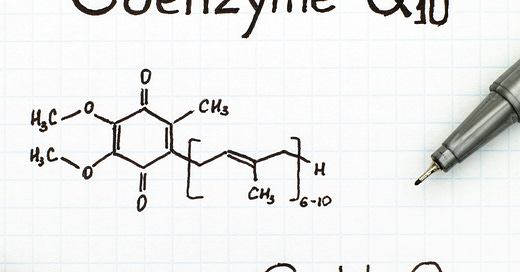Nutritional Deficiencies, Depression, and Suicide
Vitamin therapies may reverse chronic clinical mental illness
Part of an ongoing series on how to use supplement and behavior-based plans to treat common maladies. To read the detailed supplement plans, order supplements, or download the patient resource sheets, go here to create a free patient account at Fullscript by entering your name and email address: Dr. Mark McDonald’s Fullscript dispensary
As a psychiatrist, I often find depression difficult to treat. For many patients, depression is not a temporary state but a chronic or recurring one and often poorly responsive to medication. It’s not uncommon for patients to come to me after having tried two, three, or four different anti-depressant drugs, none offering significant lasting relief. And sadly, the number one cause of suicide is untreated depression.
I began offering my depressed patients a different approach several years ago, one that includes supplementation as a primary treatment component. Now, a recent UC San Diego study published in Nature confirms nutritional deficiencies are linked to treatment-resistant depression and suicidal thoughts, lending further support to my recommendation to consider including vitamins in any treatment plan for depression.
The authors found that patients suffering from major depressive disorder showed nutritional deficiencies in their blood: low levels of the antioxidants CoQ10 and lutein, as well as carnitine and folate (vitamin B9). Recently, I wrote about the connection between vitamin B12 and depression in my article “Depression, Dementia, and Vitamin B12.” I explained that what you eat may determine how you feel. Many of these vitamins can only be found in animal products, which explains why vegetarians and vegans suffer from higher rates of depression and dementia than the rest of the population that eats a healthy, complete, and balanced diet.
The most straightforward solution to nutrient deficiencies is to improve your diet. Eating more meat, milk, and eggs can solve the deficiencies listed above.
Another solution is to take advantage of supplements like CoQ10 and B vitamins. I highly recommend beef liver supplements, which are replete with B vitamins as well as essential minerals like copper, selenium, and zinc. As they come in a highly bioavailable form, everything in the supplement is readily digested and incorporated into the body, unlike single vitamins manufactured in labs. To make things easy, I’ve curated a plan with several recommendations, available at my Fullscript dispensary.
Below is a link to my depression plan for nutrient deficiency I provide my patients. I am now sharing it with my Substack subscribers. To access the plan, you must first create a free patient account at Fullscript by entering your name and email address: Dr. Mark McDonald’s Fullscript dispensary Watch a one-minute video on how to create an account here.




Important information here for people struggling. Dr. McDonald is also teaching THE RED PILL COURSE starting tomorrow, Tues Jan 9th
https://ipak-edu.org/registration/e/THE-RED-PILL-COURSE-How-to-Not-Be-Fooled-p448227262
Of course quality matters. I like Michael Pollen’s assessment at the end of ‘The Omnivore’s Dilemma’ Eat mainly plants. Simple as that. Helps the earth, helps end the horror of the meat industry and helps the human body function optimally.and I am a leftie and it seems I. The end the hippies were right.🌿